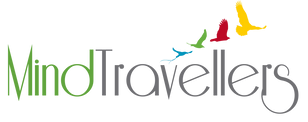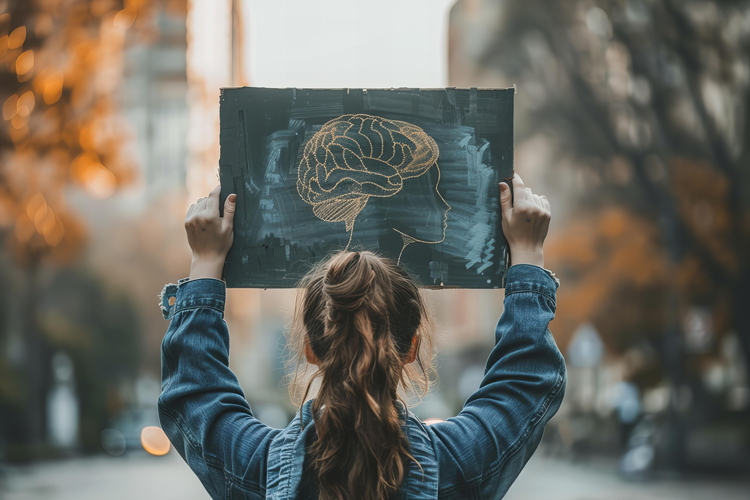The Therapeutic Power of Entheogenic Substances: A New Era for Mental Health
Entheogenic substances, also known as psychedelics, have a long history as tools for spiritual and cultural rituals. However, their modern application is increasingly shifting towards therapeutic interventions. Organizations like MindTravellers, in collaboration with scientific institutions such as Maastricht University, are using these substances to treat complex mental health issues such as addictions, depression, and anxiety. This marks a significant step in rediscovering the healing power of these substances and their potential to transform lives.
What Are Entheogenic Substances?
The term *entheogen* is derived from the Greek *entheos* (the inner divine) and *genesthai* (to bring forth). This indicates the ability of these substances to induce profound spiritual or mystical experiences. Entheogens encompass a wide range of substances, both natural and synthetic, including psilocybin (the active ingredient in “magic” mushrooms), LSD, DMT (known from Ayahuasca), mescaline, and even MDMA. These substances have the capacity to dramatically alter consciousness and have been used for thousands of years in various cultures for spiritual and healing purposes.
In modern times, these substances have also been rediscovered for their potential to help address psychological issues. MindTravellers is one of the organizations at the forefront of this movement, offering carefully guided entheogenic sessions to help participants overcome personal blocks and mental health challenges.
Historical and Spiritual Background
Entheogenic substances have been used for millennia in spiritual and shamanistic traditions worldwide. The ancient Aztecs considered psilocybin-containing mushrooms sacred, and indigenous peoples of North and South America have used mescaline-rich cacti or DMT-laden plants in ceremonies for healing and spiritual growth. While the use of these substances was suppressed for a long time in the Western world, psychedelics saw a brief resurgence in the 1960s, where they were embraced by countercultural movements seeking spiritual and cultural liberation.
In recent years, there has been renewed scientific interest in these substances, and they are being re-examined for their potential in mental health care. Scientists are studying the neurochemical effects of psychedelics and how they might help alleviate mental conditions such as depression, anxiety, and addiction.
The Scientific Basis: How Do Entheogens Work?
Entheogens primarily affect the brain’s serotonin system, which is crucial for mood regulation, perception, and sleep. Many of these substances bind to the 5-HT2A receptor, disrupting normal perception processes and increasing connectivity between various brain regions. This enhances communication between neural networks that typically do not interact, potentially leading to new insights and perspectives.
– Perceptual changes: Users often report intense hallucinations, distorted sense of time, and heightened sensitivity to external stimuli such as sound and color.
– Ego loss: Many users experience a sense of ego dissolution, where the sense of self temporarily disappears, leading to a feeling of unity with the surroundings and the universe.
– Increased brain connectivity: Neuroimaging studies show that psychedelics bring the brain into a state of heightened connectivity, potentially contributing to the breaking of rigid thought patterns and the development of new insights.
These unique effects make entheogens valuable not only for spiritual experiences but also for therapeutic applications. They help people break through mental barriers and address complex emotional problems at a deeper level.
MindTravellers: Entheogenic Therapy in Practice
MindTravellers is an organization pioneering the use of entheogens for therapeutic purposes. Their mission is to guide individuals through entheogenic sessions to help them break free from addictions, depression, and anxiety disorders. These sessions take place in a safe, controlled environment, where experienced therapists guide participants on their journey to inner healing and transformation.
What sets MindTravellers apart is the combination of traditional shamanic knowledge with modern therapeutic methods. Participants are helped to connect with deep-seated emotions and thought patterns that affect their well-being. By using these substances in a carefully supportive setting, people can confront their fears and past traumas, leading to symptom relief and often profound personal growth.
Collaboration with Maastricht University
The effects of psychedelics are not just anecdotal or based on ancient traditions. Maastricht University, with whom MindTravellers closely collaborates, has conducted promising research on the use of entheogenic substances in treating mental disorders. Their studies show that entheogenic therapy can bring about significant improvements in people suffering from addictions, depression, and anxiety disorders.
Research has shown that participants in these sessions, under therapeutic guidance, experience a significant reduction in their symptoms. For example, patients with treatment-resistant depression often feel a sense of relief and new perspective after just one or a few sessions. In the case of addictions, entheogenic therapy offers a new approach: instead of simply addressing the addiction itself, it helps individuals uncover the underlying psychological patterns that drive their destructive behavior.
What Can We Learn from Entheogenic Substances?
The therapeutic applications of entheogens offer fascinating insights into the human mind and how we can heal ourselves. From spiritual and mystical experiences to profound psychological insights, the lessons learned from entheogenic therapy are varied and profound:
– Connection and unity: A common theme in entheogenic experiences is the feeling of connectedness with the world, nature, and other people. This sense of unity can help individuals detach from feelings of isolation, depression, and alienation.
– Healing trauma and addiction: The experience can help confront and resolve deep-seated traumas and addictions. By breaking through the protective mechanisms of the ego, individuals gain the chance to view their problems with a new perspective.
– Creativity and personal development: By increasing connectivity between different brain regions, entheogens can stimulate creativity. Many people report enhanced problem-solving abilities and a fresh outlook on old patterns after a psychedelic experience.
– Self-reflection and spiritual awakening: Entheogenic substances provide an opportunity for deep introspection. They help people not only look outward but also inward, to reflect on their own life and spiritual journey. For many, this leads to a spiritual awakening, where they discover a sense of meaning and connection they did not previously have.
The Risks of Entheogenic Therapy
While the benefits are promising, there are also risks associated with the use of entheogens, especially when used outside of a controlled setting. A “bad trip,” where the user is overwhelmed by fear or paranoia, can be traumatic. This is why it is crucial that entheogenic therapies like those of MindTravellers take place in a carefully guided environment, where safety and care are paramount.
Additionally, entheogenic experiences can evoke intense emotions and memories, which can be overwhelming for some people without the proper support. This underscores the importance of professional guidance when using these substances.
Conclusion
The rise of organizations like MindTravellers, combined with scientific research from institutions such as Maastricht University, offers hope for people suffering from complex mental health problems. By using entheogenic substances in a safe and therapeutic manner, a new path is being opened for the treatment of conditions such as addictions, depression, and anxiety. The rediscovery of these ancient substances provides an opportunity not only to address mental health issues but also to explore the human mind and foster profound personal and spiritual growth.


